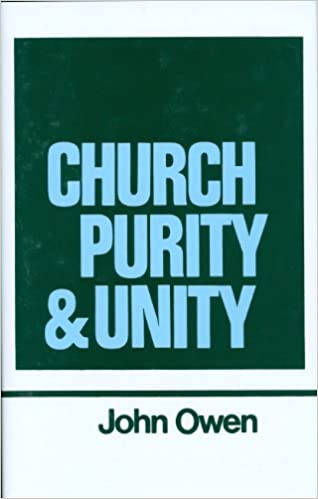A Brief Book Summary from Books At a Glance
by Steve West
Editor’s Note: Most of our readers will already be at least somewhat acquainted with John Owen (1616-1683), “the prince of Puritans,” but it is not likely that many have read him extensively. His works are not only voluminous – they are tightly packed and deeply considered. Owen is neither quick nor light reading!
Today we continue our year-long series of summaries of Owen’s famous works. We trust these will be of help in introducing and/or increasing your acquaintance with this giant Puritan theologian.
Summary, Part 3
An Inquiry into the Original, Nature, Institution, Power, Order, and Communion of Evangelical Churches
Chapter I
Whenever something is proposed to us about religion, we must ask if it is from God or from man. Anything from men is not from heaven (and vice versa), and everything not planted by the Father will be uprooted. The church is from God, but the Roman church under the head of the pope is set up by man. That church claimed to be the only one, but it supported every lust, shed the blood of holy people, and exalted secular advancement. When we see corruption, sin, murder, and division, it is no wonder that people question whether it is from heaven. The ends and means they pursued were of the world, and they advanced themselves while forbidding the actual edification of others. Notwithstanding this corruption, there is no doubt that the true church of Christ is from heaven. That which is a false church and opposes the true body of Christ will be destroyed by the Lord. God created man in his own image so that man could worship him, and he also ordained societies in which man could worship in the church. The law of nature establishes certain basic truths, but it is insufficient to guide us in our worship of God, so we need special revelation of the rules and ordinances of worship. We see God ordaining a church-state from the very beginning, and elaborating rules with his old covenant people. People cannot be forced to belong to it, but must voluntarily give their assent. . . .
[To continue reading this summary, please see below....]The remainder of this article is premium content. Become a member to continue reading.
Already have an account? Sign In
